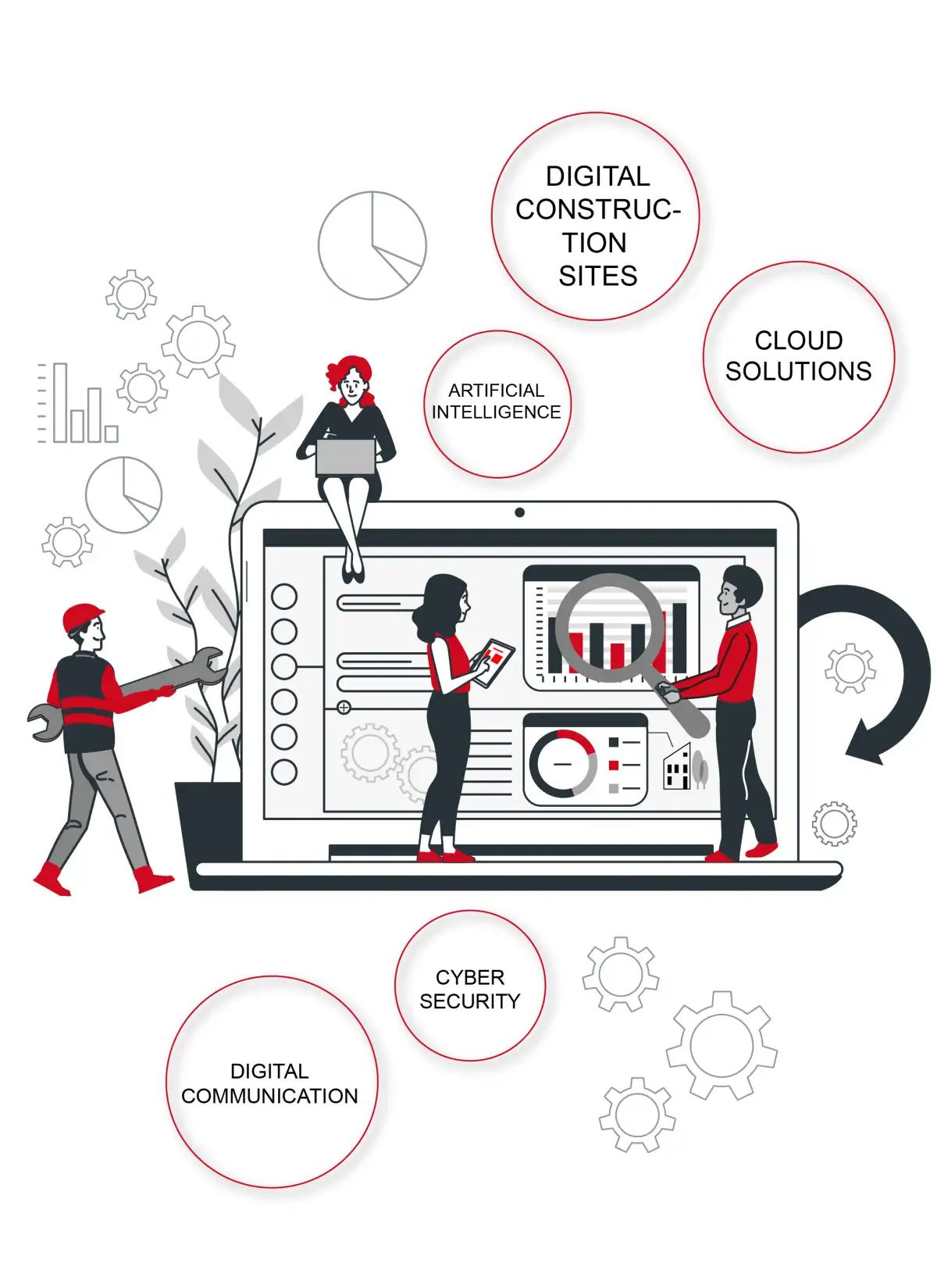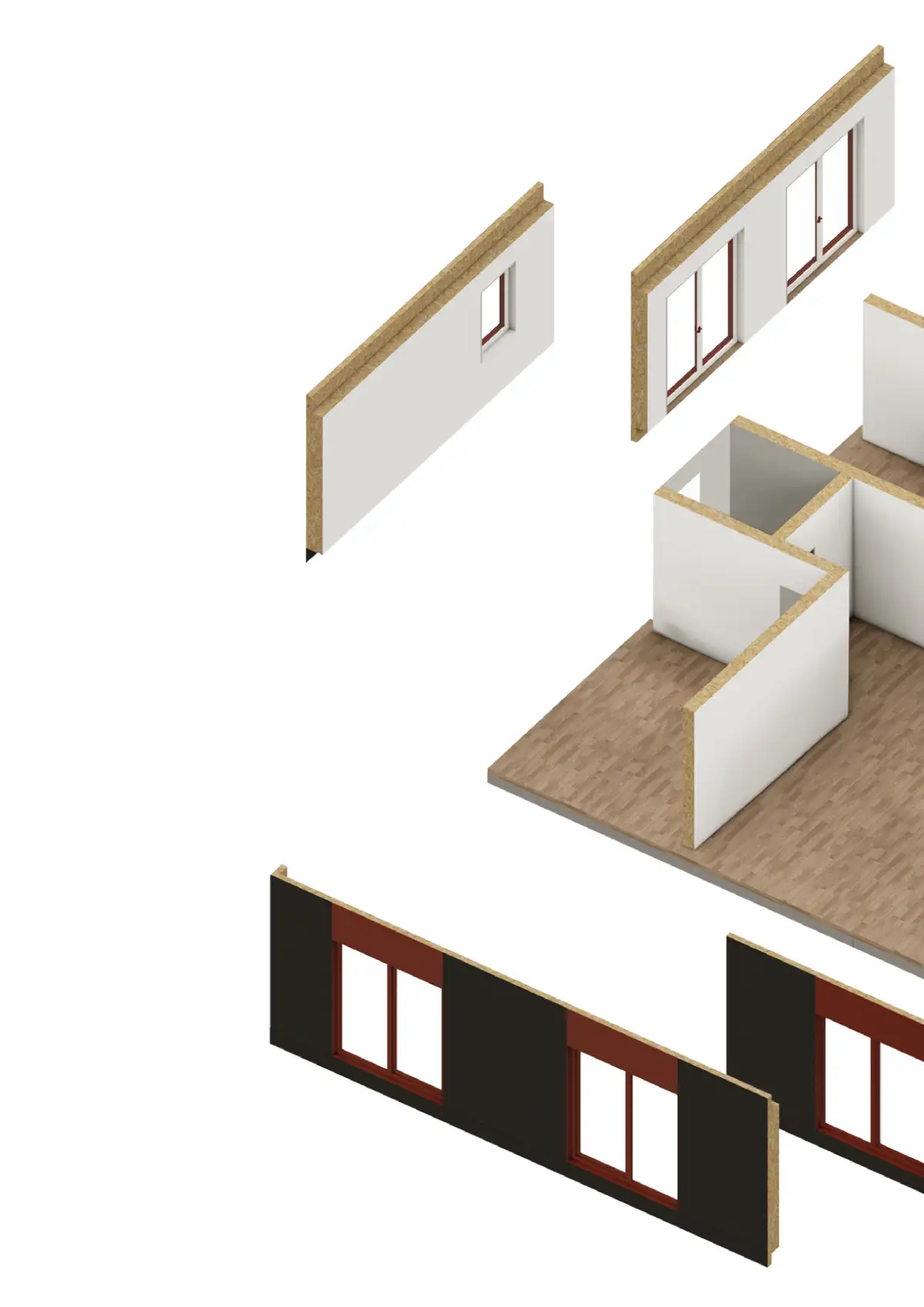ARTIFICIAL INTELLIGENCE
Artificial Intelligence and Innovative Media in Architecture
Digitalisation and Artificial Intelligence (AI) have become indispensable in planning and construction, playing a central role in addressing demographic, ecological, and economic challenges. This ranges from AI systems that transform text inputs into impressive visual representations, to digital tools for site analysis, inventory collection, integration of sustainability aspects into planning (life cycle analysis, building simulation), streamlining planning and construction phases, project management, and optimisation of building energy management, to AI applications that improve the circular economy in the construction sector.
To optimise various aspects of planning and architectural processes, computer-based systems, software, and data are used to transform traditional manual practices into digital workflows. These enable more efficient approaches for design, analysis, documentation, access to planning documents, and communication. Commonly used tools include AI image generation, Geographic Information Systems (GIS), LiDAR, photogrammetry, parametric design, Building Information Modelling (BIM), 3D printing, IoT, energy monitoring, virtual reality, and augmented reality. The market offers a variety of other innovative solutions that can contribute to optimising planning and construction processes. AI-powered tools enable comprehensive data analysis, such as life cycle analyses of building materials, energy demand simulations, and the assessment of climatic impacts of building designs. These data-driven approaches ensure aesthetically pleasing, functional, and ecologically sustainable buildings.
Icon sources: “Spatial Computing” icon by Diyah Farida, “Checklist” icon by Kawalan Icon, “Bit” icon by LAFS, and “Digital Asset” icon by Soapi – all from https://thenounproject.com, CC BY 3.0


